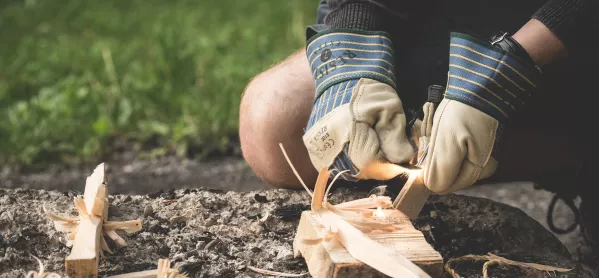Teaching bushcraft skills to pupils living in poverty could boost their performance at school, according to Scouts Scotland.
The Scouts want to work with schools during the holidays to provide outdoor experiences that they believe could improve attendance, behaviour and academic performance.
They point to research which shows that Scout activities can lead to “a statistically significant increase in leadership skills”, with “schools highlighting an improvement in pupils’ attendance, behaviour and academic performance”.
The organisation makes the call in a submission to a Scottish Parliament inquiry on poverty and attainment, in which it says its expertise could be used to support pupils and their families.
According to Katie Docherty, chief executive of Scouts Scotland, “teachers inform us that evidencing the benefits of outdoor and non-formal learning remains difficult”.
She suggested that money could be taken from the Scottish Attainment Challenge or Pupil Equity Fund - similar to England’s Pupil Premium - to set up “summer school residential experiences” for disadvantaged pupils.
Benefits to pupils’ wellbeing
There are some schools where scouting is “embedded in the curriculum”, which can lead to Scottish Qualifications Authority leadership awards, equivalent to Scotland’s gold-standard Higher qualification, said Ms Docherty.
But, she added: “At present, a formal process that enables organisations like Scouts Scotland to work in partnership with every school or local authority is missing.”
Scouts Scotland highlighted research from 2015 which showed that nine out of 10 UK teachers had favourable attitudes towards non-formal learning, while 51 per cent strongly agreed that their students would benefit from non-formal education opportunities.
Ms Docherty added that the time children spend outside of the classroom is “significantly more influential on their attainment than the time spent in the classroom”.
She said: “Our teams have the qualifications and experience to deliver bushcraft and camping skills training to parents in local settings or as part of a residential programme.”
This could be done “in partnership with schools and local authorities” during holidays, she added.
In 2016, Tes wrote about research which suggested that children who joined Scouts and Guides - and benefited from outdoors experiences and independent learning as a result - had better mental health in adulthood.





